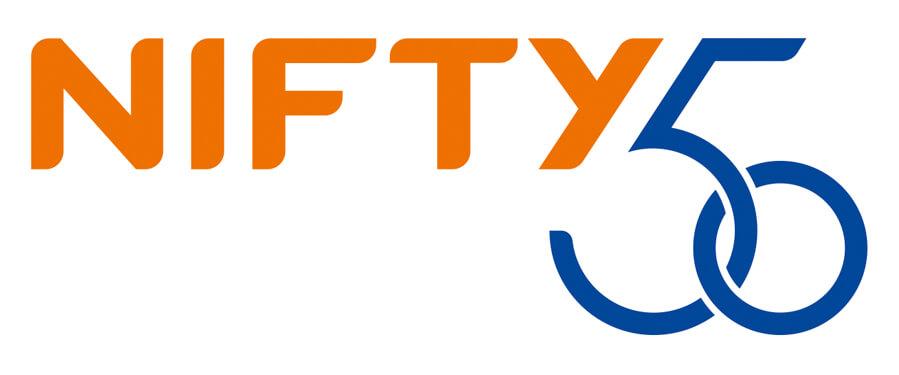Broadly termed as a NIFTY 50 (National Stock Exchange Fifty) is the primary stock index of India is consisted of top 50 listed companies in the national stock exchange. The criteria to select these companies is based upon their market capitalization of their stocks and their accumulated capitalization standing, approximately, to 60% of entire National Stock Exchange.
The companies listed in the NIFTY index are chosen from 22 different sectors and comprised of the leading companies of the India. Therefore, NIFTY is a best choice offered to a trader to make a best bet out of his investment in the stock market.

Nifty is a collection of 50 stocks taken from 22 exclusive sectors of the economic system. The benefit of the nifty indexation is that it made a category for every quarter and pick out 50 stocks from different region according to their market capitalization and place them on pinnacle 50 stocks in NSE. The indexation additionally outlines that they’re very extraordinarily traded, so they may be quite liquid. It’s far pretty easy to get into and get out of these shares. While buying and selling a trader don’t want the stock price to be caught around a few value for months. In buying and selling what you need to do is get right into a stock that you feel will go up, take your targeted income and then flow on to some different stock. You just have to master this system.

Different from equities and being indexed as a top listed companies in NSE, the trading in NIFTY due to their nature is primarily done by two methods:
Nifty is a collection of 50 stocks taken from 22 exclusive sectors of the economic system. The benefit of the nifty indexation is that it made a category for every quarter and pick out 50 stocks from different region according to their market capitalization and place them on pinnacle 50 stocks in NSE. The indexation additionally outlines that they’re very extraordinarily traded, so they may be quite liquid. It’s far pretty easy to get into and get out of these shares. While buying and selling a trader don’t want the stock price to be caught around a few value for months. In buying and selling what you need to do is get right into a stock that you feel will go up, take your targeted income and then flow on to some different stock. You just have to master this system.
Trading in Nifty Future is consisted of a Future contract between the buyer and the seller for buying or selling a lot of Nifty on a future date. A trader is required to deposit 15% margin amount of the total price of the lot. However, this margin changes from day-to-day according to change in the price of index and thus is known as market to market margin. A trader gain on a Nifty Future Contract on the basis of difference if index goes up and lose if index goes down and vice versa. On the settlement day, a trader is required to close the position.
In a contract between the buyer and the seller for buying or selling one or more lots of Nifty on a future date and at a specific price on a future date. The buyer of the option pays a premium for owning the option contract and this premium depends on the current position of Nifty and the specific option that the buyer is buying. The trader for a long position buy CALL Option and for short position buy PUT Option.
Apart from holding a position till the expiry day, a trader can square off its position on the same day. Closing a trade within a day is called intraday trading. Similarly to intraday trading in equities, the trades are being carried out within a day in NIFTY. A trader is just required to open a position at the beginning of the day and close it by the end of the day.
But a trader while trading in Nifty intraday should be vigilant about the simultaneous fluctuations in volume and price. There should be enough volume in the strike price to square off the position anytime across the day.
Trading in Nifty offers following benefits to a trader with respect to returns.
For the Nifty future, the margin required by a broker or an exchange remains and varies within the range of 8% to 15%, almost. Whereas in stock future an average of 13% of margin is required. Wisdom Capital offers a trade in Nifty Future with just Rs.5000 margin for intraday positions.
Broadly speaking spreads means the bid-ask difference in a trade. It is a price variance in the quote of buyers and sellers. Traders involved in scalping trade strategies makes the best usage of spreads. The lower price difference even lowers trading costs. Thus, Nifty offers a better price opportunity to buy or sell.
Nifty 50 is consisted of around 50 stocks from 21 different sectors. The collection of so many of stocks in NIFTY offer stability in positions. If trade in a particular stock goes wrong, the diversification offer cover and stability to a trader’s position.
As Nifty options present a high level of liquidity thus making it easier to take a research and a trading call. A trader is just required to learn various Out-of-the money and In-the-money situation along with corresponding interest. These options can be applied for hedging the long or short positions.
Tracking and predicting moves in nifty are quite easy in comparison to stocks. Technical analysis charts tells a lot about trading in Nifty. Nifty mostly get driven by domestic and international market sentiments.
So, invest in NIFTY trading with the assistance of Wisdom Capital, the most reliable NIFTY Trading Platform in entire India.
In order to do online trading in commodity with Wisdom Capital feel free to contact us at: 1800-123-9343